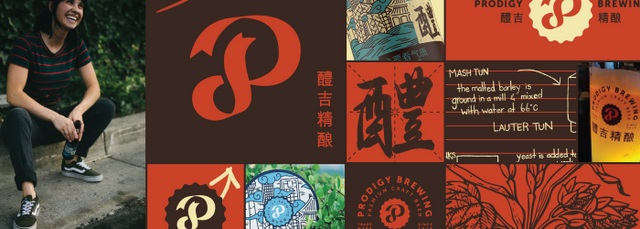
This column was provided by CODO Design, a branding firm based in Indianapolis, IN. They’ve worked with breweries across the United States and around the world, on naming, positioning, branding and rebranding, responsive web design, and package design. If you’d like to discuss your brewery’s branding, shoot Isaac an email: [email protected]
Working with breweries in other countries has become common place for us. Whether that’s Argentina, Scotland, Australia, Belgium, Canada or China, one thing that unites all of these places is that they all look to the United States craft beer market as a model for their own endeavors. There are multiple countries and markets that are essentially the Wild West when it comes to starting a beer brand — with millions of beer drinkers ready to be captured by great beer and compelling branding. And the groundwork and road map (from branding, positioning and storytelling, to beer styles and sales/experiences strategies) have all been paved by 25+ years of work here in the States.
Of all the markets we’ve experienced, China is perhaps the most frenetic and exciting. For context, the United States has ~7,500 craft breweries with an approximate population of 327 million people. China’s population stands at 1.3 billion people with 350 craft breweries in the entire country. And with a burgeoning middle class, this number will only continue to increase for the foreseeable future.
In late 2017, we had the pleasure of branding one of those upstart breweries in Beijing called Prodigy Brewing.
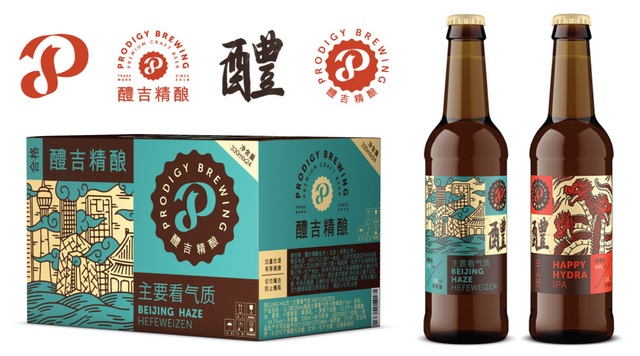
This project stands out for us for a few reasons: for starters, it was our first work in China. Secondly, as much as I hate admitting this, because our early work so completely missed the mark that we earned a trip to Beijing to get a firsthand look at the people, places, and culture that make up the Chinese craft beer industry to get back on track. You can read a full review of this project, warts and all, here.
It’s been about a year and a half since we launched Prodigy’s brand and we thought it would be a good time to check in with Jason Smith and his team to see how they’ve been received in Beijing.
CODO: Kicking off, please introduce yourself—what’s your background, and why did you decide to open a brewery in China?
Jason: I’ve spent a lot of time in China for work and have fallen in love with the country, culture and people. Matt, Rob, and I are lifelong friends, and I’ve been home brewing with Rob for over a decade. Over the years we discussed opening a small brewery, but felt that the US market has become saturated and the competition is very intense. China, on the other hand, is beginning to develop a thriving craft beer scene and right now it feels more like the beginning of the development in the United States. Lots of opportunity that comes with lots of challenges.
Can you give us a rundown on the Chinese beer landscape. Has this changed since launching Prodigy?
Chinese drink a particular alcohol called baijiu (pronounced bye joe) which translates as “white wine.” Chinese people will often call it Chinese white wine in English which can really confuse foreigners. Baijiu is more like a whiskey and is made from sorghum, wheat, rice, sticky rice, and corn. It is the largest selling distilled beverage in the world and is used at formal banquet dinners to make a toast and to drink in large amounts. It typically has an ABV percentage greater than 40% and is often the staple of Chinese drinking.
Since baijiu is the focus, Chinese industrial beer is typically used more like a Pepsi or Coke would be in the US. That is, it is simply something to drink between your toasts with Baijiu. Because of this Chinese industrial beer is very light, typically with an alcohol content of around 2.5% by volume. Although these meetings and dinners, with baijiu and industrial beer, are not going away, there is certainly an interest in the American brewpub experience.
Successful brewpubs in China typically have both beer and food which is a fusion of both Chinese and American culture. This movement has really been driving Chinese awareness of what is a craft beer and how it is typically consumed.

What’s your vision for Prodigy? Completely dominate the entire market, new taprooms, import to the States, etc?
Prodigy began only focusing on distribution. We have leased equipment from a large commercial brewery and produced our first batch of beer which was 20 tons! That was nearly 50,000 bottles. We now are selling beer at a few locations in Beijing, Chengdu, and Kunming, and are looking to expand to other markets (including opening a small location in Beijing this year).
After establishing a reasonable distribution network and location we will consider our next steps for expanding. We are excited to work toward our goal of becoming a top ten craft brewery in China and getting into education our customers about craft beer to not only help our brand but all the craft brewers in China.
What’s the most challenging aspect of running a business from half a world away?
I would have to say that communication, culture differences, and the 14 to 15 hour time change all add to the difficulty of running a business in a different country which is so far away. When I’m getting ready to start my day, the people in China are ready to sleep. Although I travel to China an awful lot and am learning to speak the language, I will never be Chinese and this ensures that no matter how careful I am there will be missteps in adapting to the culture.
You came out of the gate with a Hefe and an IPA. Is the Chinese beer consumer constantly chasing new styles like here in the States or do they gravitate towards what they know and love (brand and style-wise)?
Chinese people have very developed palates as their food how so much spice and flavor so I do think they are willing to try different styles. A Hefe is universally accepted and an IPA is going to sell well in bigger cities where the people have been exposed and learned about craft beer. Other styles, in particular fusion styles, are also really popular.
How important is story to the Chinese beer consumer?
Chinese people care more about a company’s story and background than the average American citizen. They want to understand why you are unique and what attributes you offer that separate you from other competitors. These stories are often exactly what will peak curiosity which will translate into sales. We just had our first Meet the Brewer event and it was really impactful to have us meet with folks, tell our story, and drink our beer with us.

What role has branding played in growing your presence throughout Beijing?
Branding is as important in China as it is in the U.S. Becoming known and recognized is always important and we are actively focusing on increasing our brand’s presence this year.
What’s the most surprising thing you’ve learned as you’ve launched and grown Prodigy?
Everything seems to have an extra layer of hassle and difficulty in China. The only time I find it similar to the US is when I am interacting with ex-pats. There are more subtleties and details that need to be constantly handled and often in a meeting what is not said is more important than what actually is said.
What is the biggest mistake you’ve made so far? Or asked another way, is there anything you’d go back and do differently now that you’ve got some time in the market under your belt.
We initially tried to build our own distribution channels without the assistance of a distributor and this was a mistake. Although it does reduce your margin to use a distributor, the access to that network is really valuable.
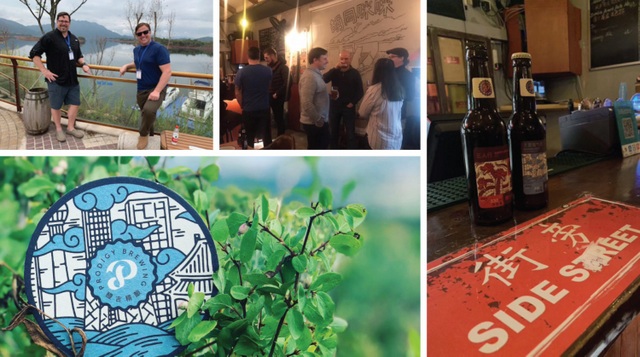
Is the Chinese regulatory environment burdensome or does it present interesting opportunities?
The regulatory environment in China is definitely both burdensome and provides opportunities. I think this can best be described as one my favorite quotes from a book about operating a steel business in China called Managing the Dragon. In the book, the author states, “In China anything is possible, but nothing is easy.” That accurately captures my thoughts.
Are there any books/podcasts/resources you’d recommend to someone who is considering starting a brewery in China?
The only things I know about are books which aren’t really focused on brewing, but they definitely highlight some cultural differences if you are paying attention. Managing the Dragon: How I’m Building a Billion-Dollar Business in China by Jack Perkowski highlights culture and challenges in operating a business in China.
There are a series of books by Peter Hessler that highlight the culture not specific to business. I would recommend reading them in the following order: River Town/Country Driving/Oracle Bones.
Finally, we used Harris Bricken law firm to create our operating rules and employment contracts. They have a wealth of knowledge about Chinese laws and regulations, in particular with regard to foreigners. They write an extensive blog title China Law Blog which you can find here.
Do you have any advice, branding or otherwise, for people who are considering opening a brewery in China?
If you want to operate in China, you are going to need some help. I wouldn’t even consider it unless you have Chinese people who you trust to work with you and it certainly isn’t easy to develop a relationship that has this amount of trust. Also, almost all the ex-pats in China who are running a similar business are amazing people who are very generous with their experiences and connections. I believe you must take advantage of both of these to be successful in China.
If you’d like to learn more about branding your craft brewery, check out CODO Design’s Craft Beer Branding Guide. This practical, step-by-step guide will help you navigate the entire branding process from naming and positioning, branding or rebranding, developing your responsive website and package design.

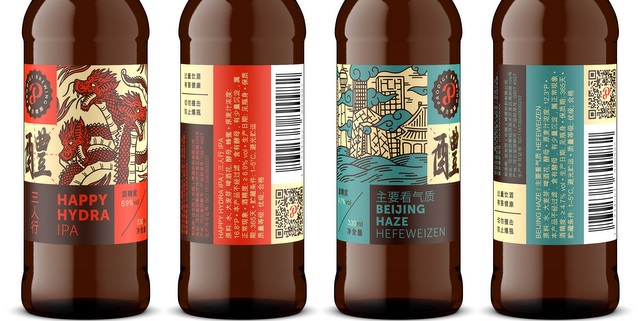

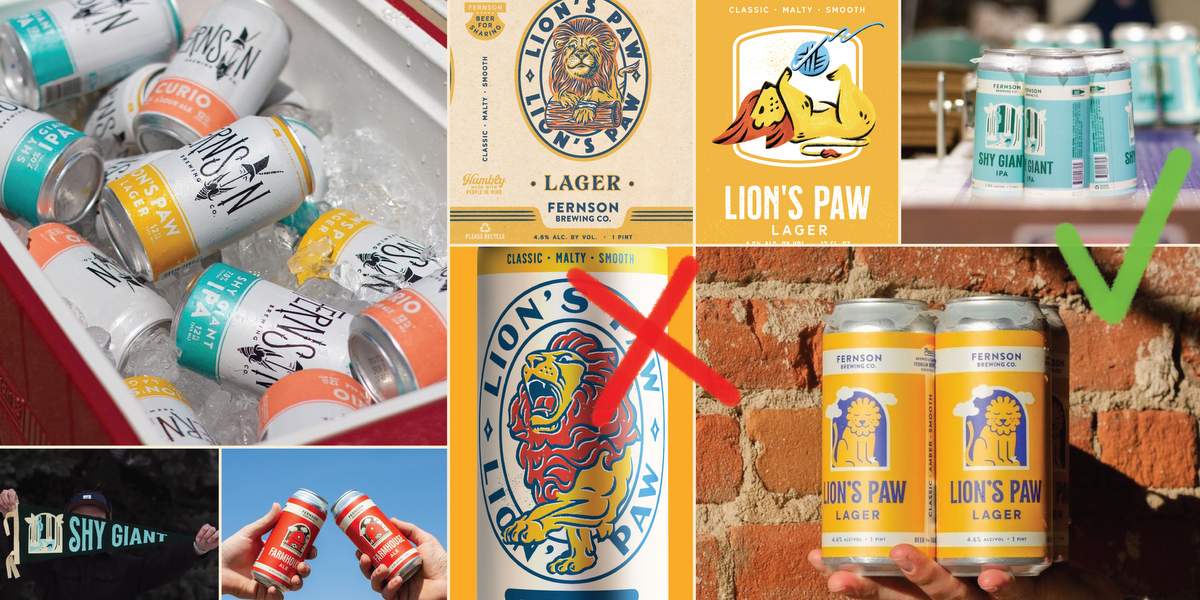
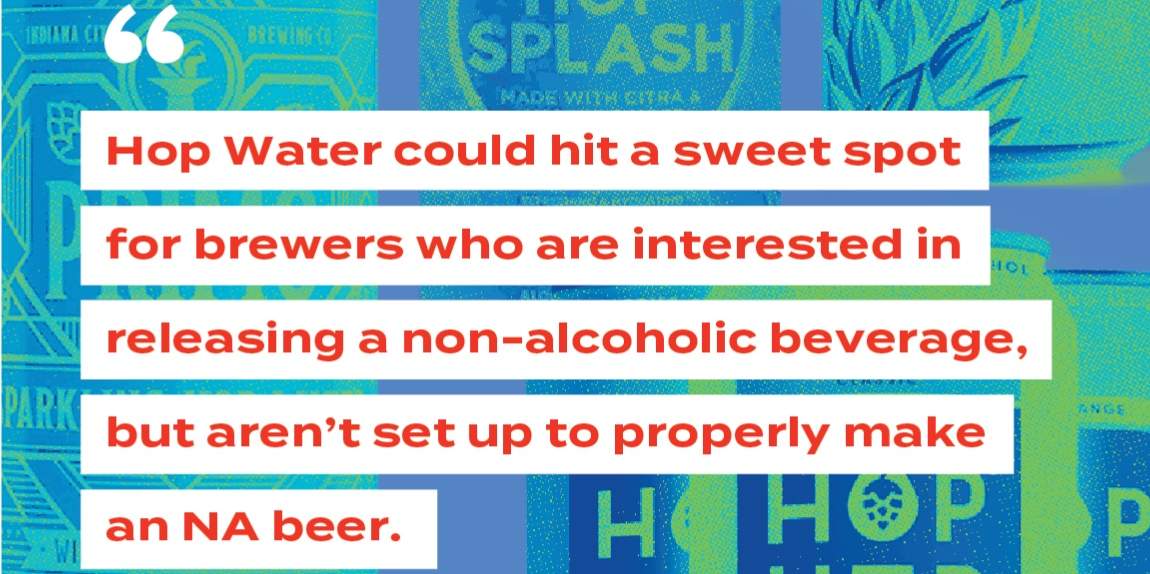

Leave a Reply
You must be logged in to post a comment.